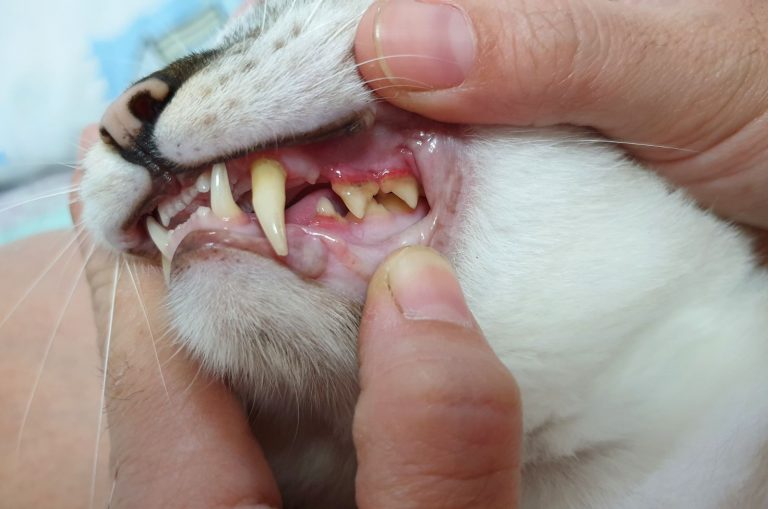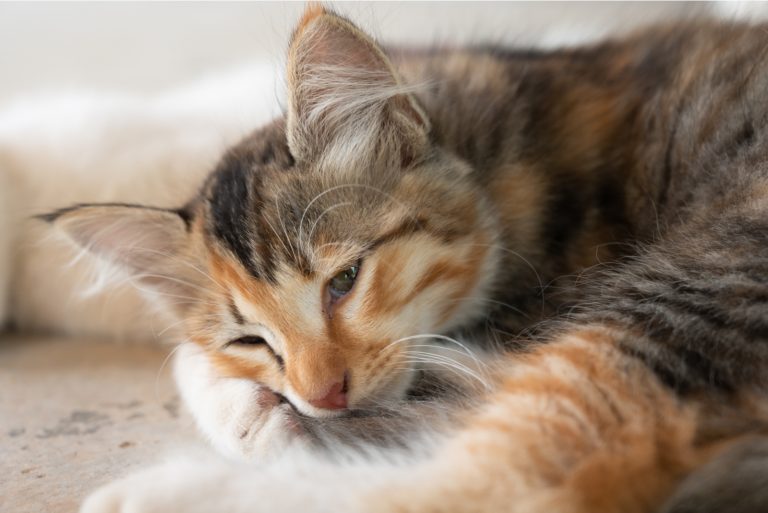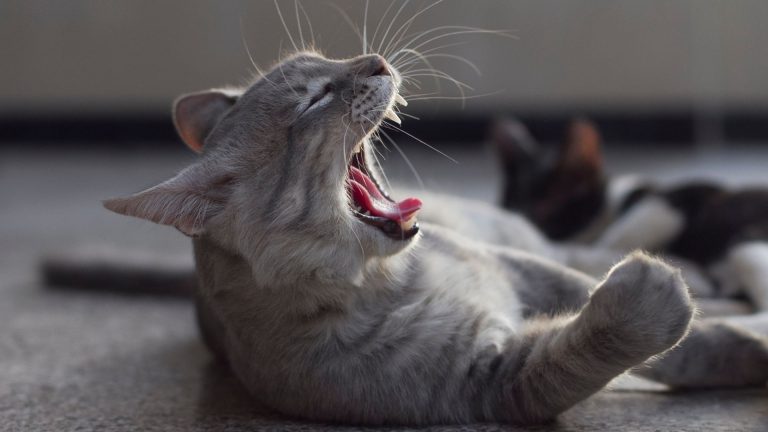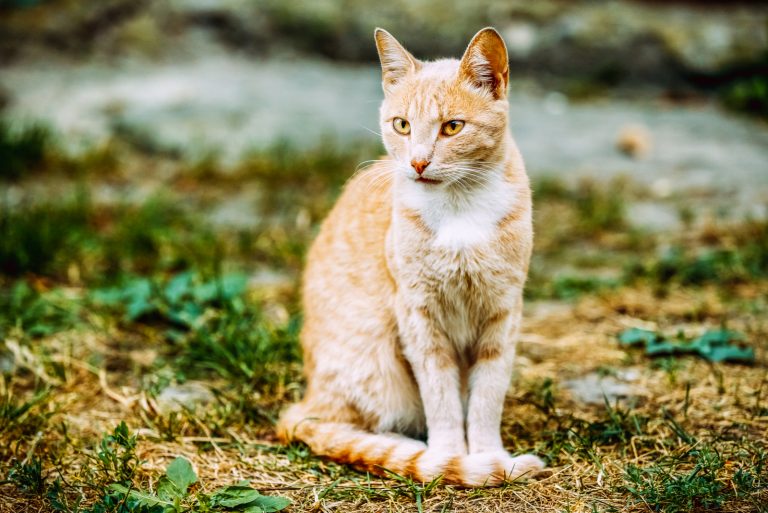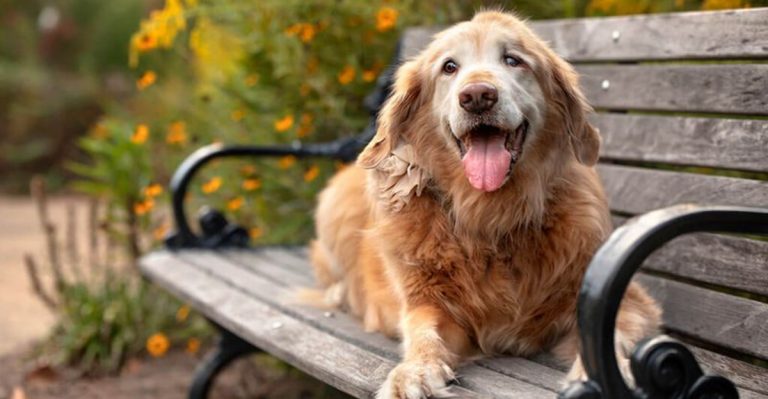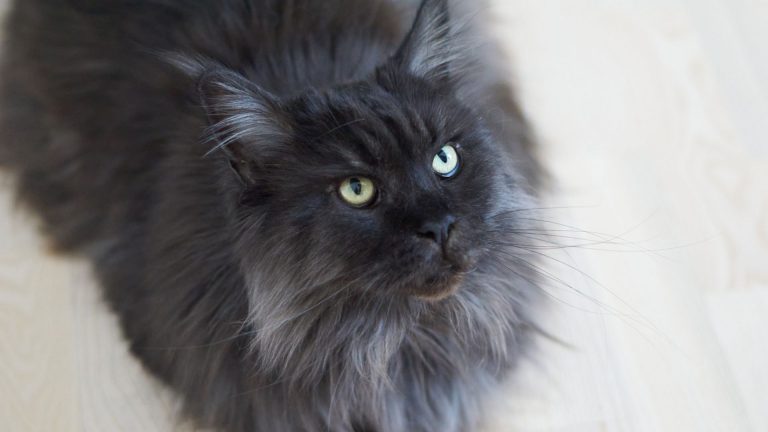Disturbing Or Natural? Why Cats Eat Their Own Babies Explained
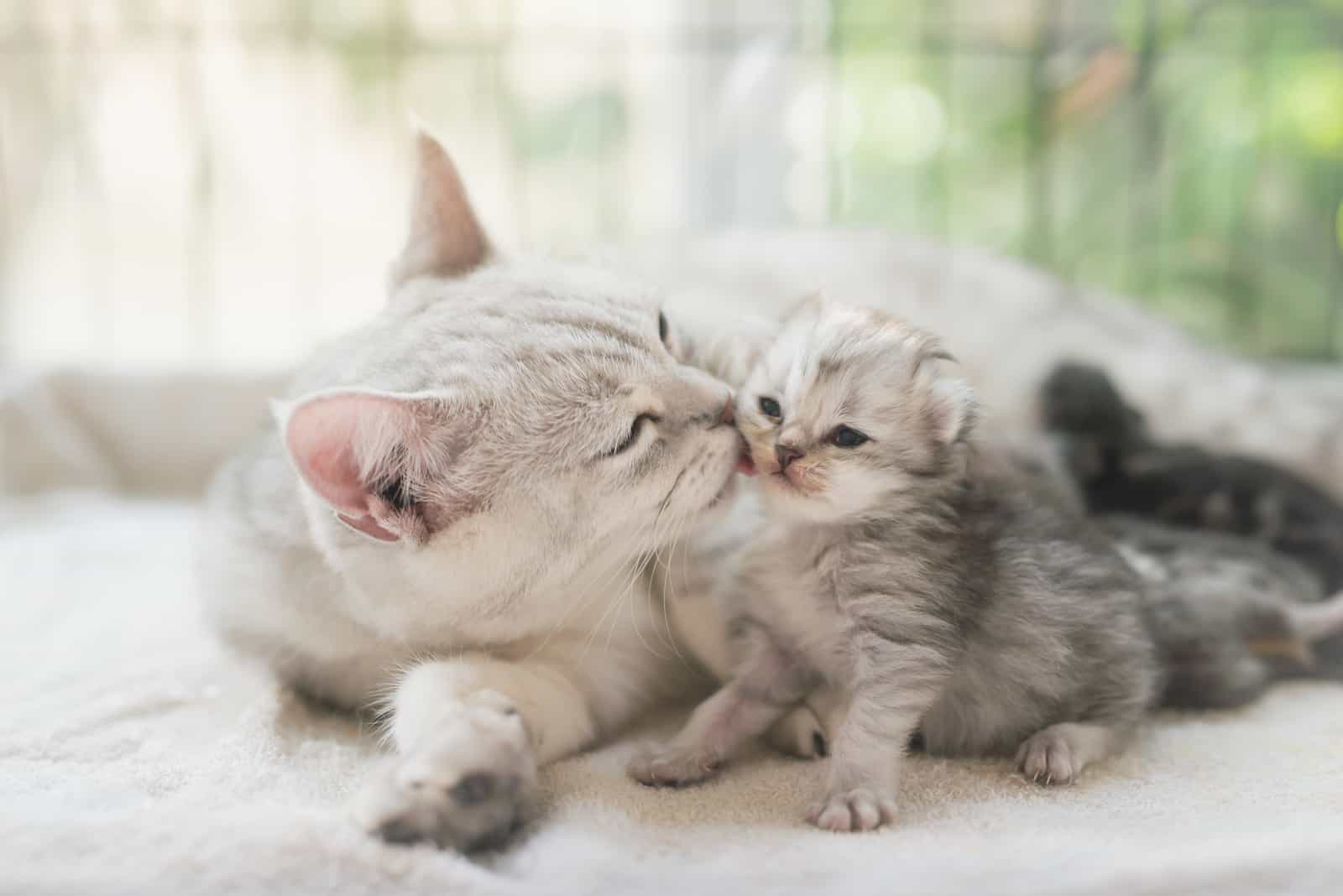
If you’ve ever seen a mother cat eating one of her babies, then you know how unsettling this sight can be. After a queen (mother cat) has given birth, we would naturally expect them to nurse and snuggle up with her kittens and not eat them.
If you have ever seen or heard of this then you must have wondered Why do cats eat their babies?
There are several reasons why a mother cat might eat its babies. Perhaps the kittens were stillborn or born very unhealthy. It could also be because the mother cat has rejected the kitten. Sometimes a mother cat is too young or malnourished and either hasn’t developed the necessary motherly instincts or is not strong enough to care for a litter of kittens.
I know the thought of cats eating their babies might be very disturbing, but does that mean that cats are bad mothers? Absolutely not!
Continue reading to find out more about the reasons behind this strange cat behavior!
Why Do Cats Eat Their Babies?
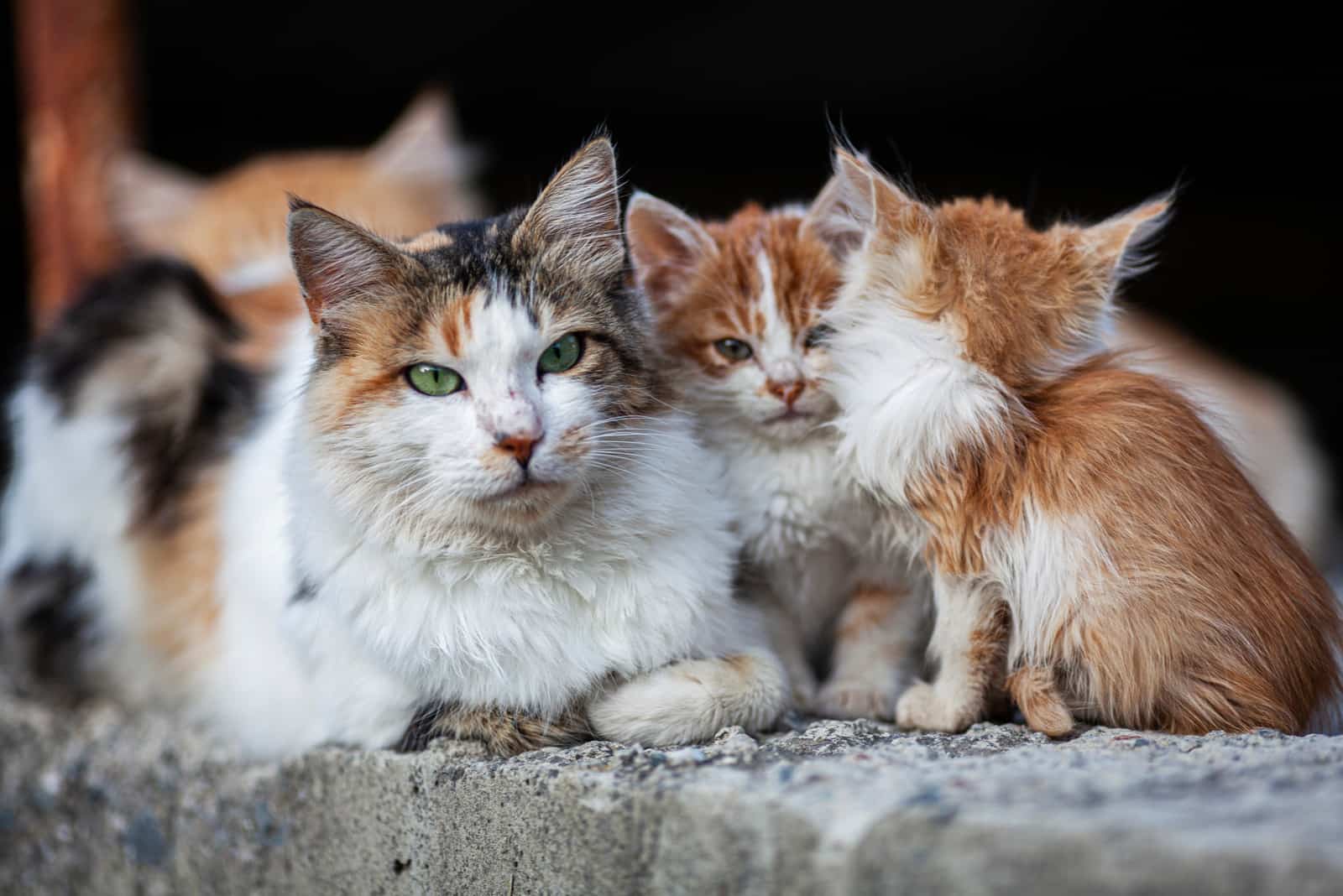
Female cats have only been observed eating their babies in extreme circumstances. These circumstances do not occur often, so there’s a very low likelihood of you actually seeing a cat eat its kittens. Nevertheless, it is a possibility so it is best to try to understand this behavior.
There are several circumstances under which mother cats may resort to this unfortunate action, and they are listed and explained below!
Reason 1: Kitten Is A Stillborn
As you know, there is always a possibility of a few kittens in the litter being stillborn. This is more commonly observed in large litters, but it can happen in smaller litters too.
If a kitten or a few kittens are stillborn, there is a chance the mother cat will eat them. But don’t panic – the reasons behind this are completely reasonable.
Reasons Behind Cats Eating Stillborn Kittens
a) Dead Kittens Are A Threat To Survival Because They Attract Predators
Domestic cats, no matter how well-adapted to cozy homes, still carry their wild ancestry in their genetic makeup. That means the survival-instinct is always on.
The smell of a decomposing kitten could attract potential predators, which is a big no-no for all cats. Survival is the number one priority, and any threat to survival needs to be removed.
A cat will prevent the dead kitten from becoming prey by eating it; this also prevents predators from being attracted to the site of a dead kitten. That ensures safety for the mother cat and the remaining kittens.
Of course, this is just survival instinct. If the cat is a house cat with attentive owners, there’s no real danger of predators coming. A cat cannot control its instincts, so this behavior is understandable.
b) The Presence Of A Dead Kitten Is Unsanitary
The smell of decaying flesh is not only unpleasant, it is also a health hazard that the mother cat will try to eliminate.
Even though it may seem counterintuitive, a cat may view eating her own kitten as more hygienic than leaving it there to decompose.
As you know, cats are considered one of the cleanest domestic animals in the world. They’re constantly grooming themselves, always hiding their waste and they hate being dirty. As a result of this nature, mother cats will not allow kitten decomposition to occur around them.
Reason 2: Kitten Is Very Sick
It will seem bizarre to see a cat eating her seemingly healthy newborn kitten. The keyword here is seemingly.
One of the most common reasons for a cat to consume one of her kittens is when it is sick or malnourished and unlikely to survive. In this situation, the mother will devour the kitten to spare it pain.
It is thought that cats might be able to detect diseases, birth defects, or physical abnormalities in kittens via their amazing sense of smell (a cat‘s sense of smell is 14 times more sensitive than a human’s). This may be one of the reasons that a mother cat will consume a baby that appears to be healthy to our eyes.
Mothers will only act in this way if they believe their kitten is bound to die.
A Sick Kitten – A Threat To Its Littermates
A sick kitten puts the rest of the litter in great danger, in two ways.
Firstly, if a kitten has contracted a bacteria or virus, there is a possibility of the kitten spreading it to the other kittens. This is a hygiene risk that the mother cat is not willing to take. The kitten could have:
🐾 a contagious bacterial infection
🐾 a contagious viral infection
🐾 a contagious fungal infection
Secondly, if the kitten passes away, the germs might swiftly spread to some other kittens, which might be a huge threat to the entire litter.
Essentially, a mother cat might eat its sick kitten in order to keep the rest of the litter in good health. When you think about it, this makes sense, especially considering the strength of the protective instinct mother cats have.
Reason 3: The Mother Cat Didn’t Recognize The Kitten As Her Own
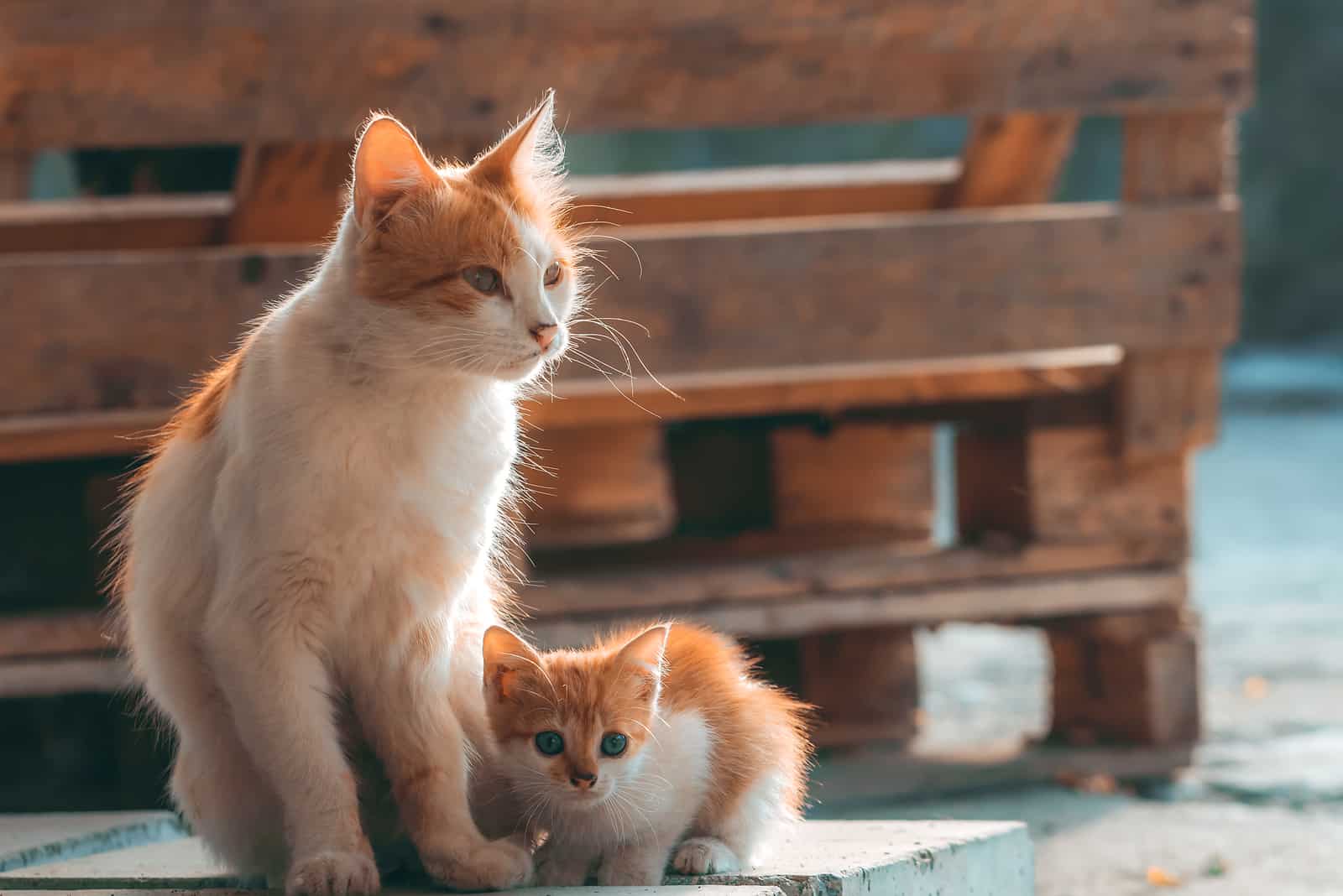
Another common reason for a mother cat eating her kitten is that the mother cat has completely rejected it. This might cause confusion for many cat lovers, so let’s get to the bottom of it:
Why Would A Cat Reject Her Own Newborn Kitten?
You already know that cats have a superior sense of smell. When a kitten is born, it’s extremely important that the mother recognizes the kittens as her own.
There is a chance of a mother cat not recognizing her kittens due to them being touched and held by humans shortly after their birth. In that way, humans transmit their own scent to the kittens they touch.
If a mother cat cannot smell her own kitten or the kitten has a “foreign” scent, this can confuse the mother. She might even mistake the young for prey, in which case she won’t think twice about devouring them.
Reason 4: The Mother Cat Is Inexperienced
Being a mother cat may be challenging, especially the first time around. A cat eating her newborn kittens is more commonly observed in first-time mothers. Why? you may ask.
If a mother cat is too young, it may be that she simply does not know what to do. If her maternal instinct does not develop on time, she might not be able to deal with her new role of mother.
It is not recommended for a cat to become pregnant as soon as she reaches sexual maturity. A female cat can get pregnant as young as 4 months old. At that stage, she’s still considered a kitten herself.
Although this is a rare occurrence, it is a possibility, especially if combined with other factors, such as the cat being stressed or feeling threatened, as explained below.
Reason 5: The Mother Cat Is Under Stress
There is a possibility of a cat eating her babies if she’s under a lot of stress.
Prior to and following the birthing process, mother cats are prone to stress and anxiety, which is typically caused by environmental causes:
🐾 Loud noises
🐾 Too many people or other pets being in the room
🐾 People constantly coming to check on the litter, touching and holding the kittens
These factors can cause the cat to feel uneasy, agitated, and anxious. She may panic that the kittens may be stolen from her, which would force her to eat one of her kittens.
Another cause of stress can be a lack of milk supply for all of her kittens. A mother cat can decide to eat one of her kittens in order to ensure enough milk for the cat’s kittens.
Reason 6: Mother Cat Feels Threatened
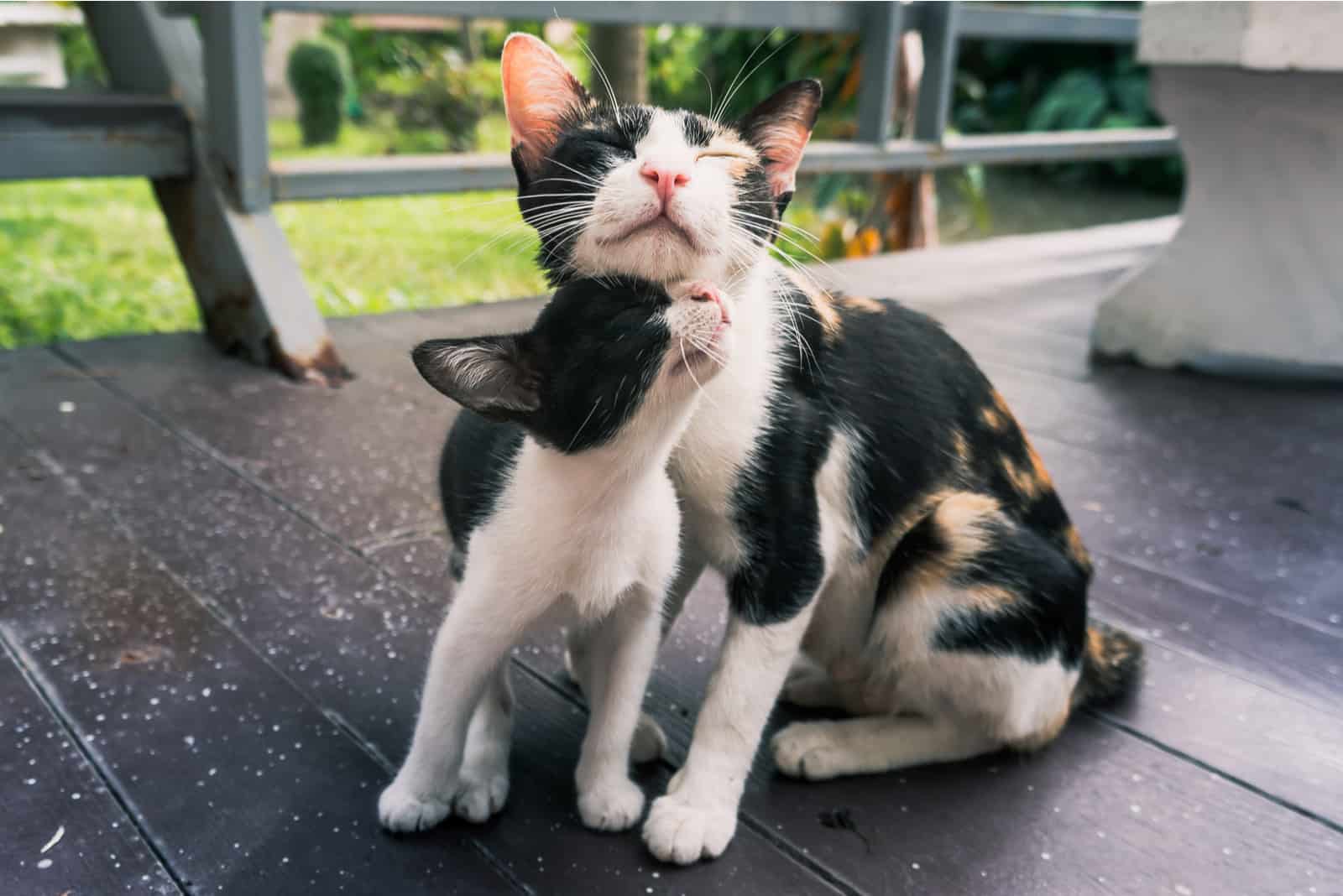
Another possible reason for mother cats eating their babies is that the mother cat has sensed danger. For example, a predator lurking around her and her kittens.
Cats may choose to eat their kittens rather than let them suffer at the hands of predators. It may be considered an act of “mercy”.
Of course, this is not a risk for your house cat as you’ll make sure no predators are around. Yet when it comes to stray cats, it is a possibility. Even domesticated cats still have the innate desire to defend their young from predators, which is a natural behavior for cats in the wild.
These kinds of circumstances almost always occur when the kittens are already dead. Mama cat might decide it’s better that she eats the kitten than the predator eats them.
Reason 7: Mother Cat Is Malnourished
A mother cat may eat one or more of her kittens because she’s malnourished. As you might expect, this is not the case for domestic cats considering (hopefully) all of them are taken care of by their owners.
Feral cats may eat one of their young in the wild because she is underweight and needs the nutrients that come from the kitten. Of course, the mother cat’s own survival is the number one priority for her and if that means eating one of her own babies, so be it.
The entire litter may be consumed by a cat that is very underweight.
Fortunately, it is less common for a domestic cat to be so underweight that it has to consume a kitten in order to survive.
Also Read: How Long Can A Cat Go Without Food? What You Need To Know
Is A Female Cat Eating Her Babies Common?
No, a mother cat eating her babies is not a very common occurrence. It only happens in extreme circumstances, such as kittens being stillborn or very sick. Not recognizing the kitten as a part of her own litter is another reason for a cat to eat her babies, as well as her being malnourished and eating the kitten to replenish energy.
You are more likely to observe a mother cat eating her kitten if the kitten is a stillborn or very sick to the point of not being able to survive. Those are the two most common reasons for this bizarre cat behavior.
Is There Anything You Can Do If A Cat Has Eaten Her Kitten?
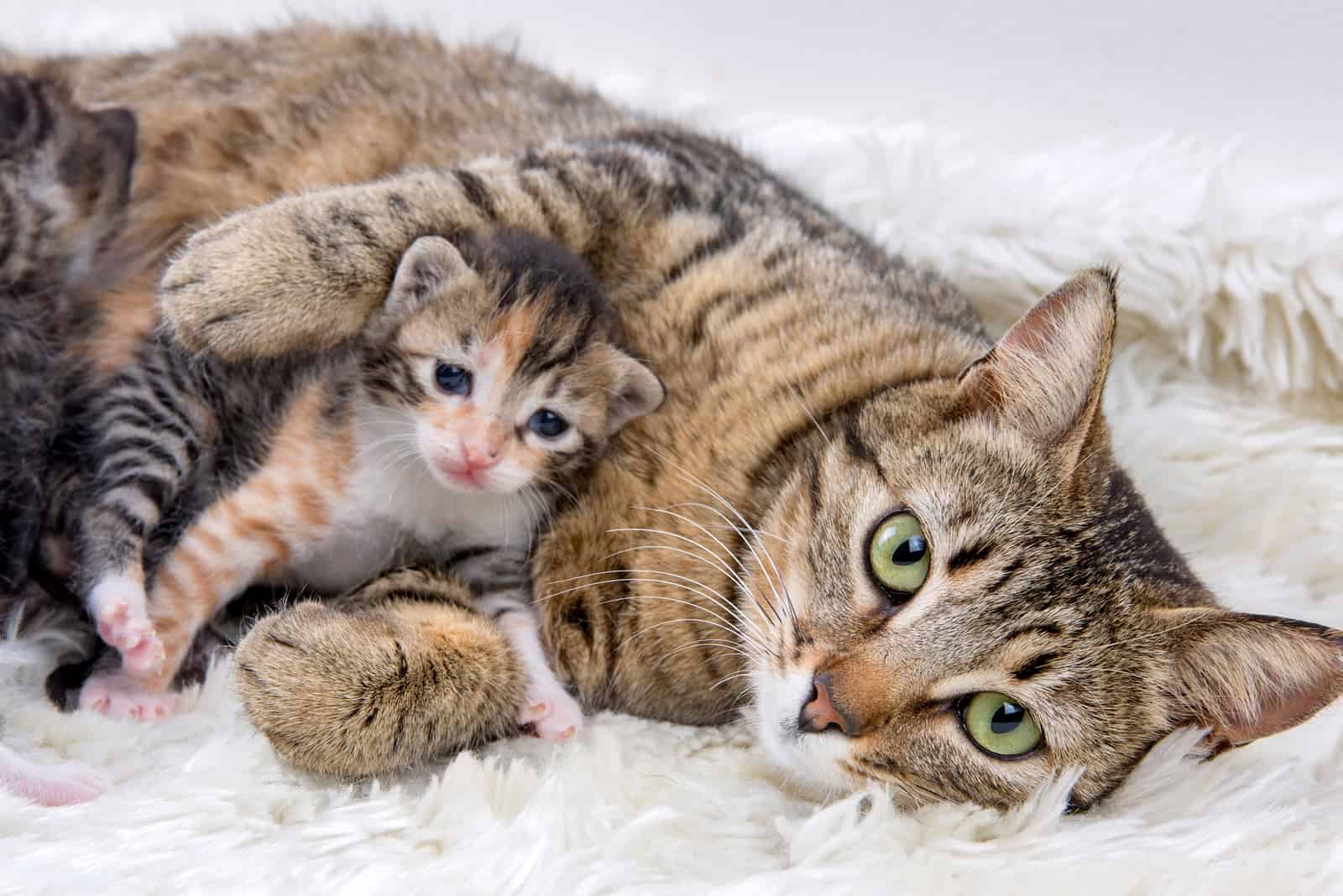
The kitten is already dead at that point, so there is nothing you can do to help the kitten, but you can save the rest of the litter.
Find the reason why your cat has eaten her kitten. If you’re successful in discovering the reason, you can prevent the mother cat from eating any more of her babies!
If you suspect your cat has not formed a bond with her kittens (pushing them away, not wanting to nurse them, not giving them attention) or if your cat has already eaten one of her kittens, it’s best to separate the litter of kittens from the mother cat.
It’s important to pay attention to your cat’s behavior and see what triggered her to eat her kitten, so you can potentially help the mother and prevent her from eating any more of her litter.
If you notice your cat has become ill, for example if her mammary glands are infected (a condition known as feline mastitis), it’s best to get veterinary advice and remove her from her kittens.
Also Read: Cat Suddenly Lethargic And Weak – Causes & Treatment Options
Is There Anything You Can Do To Prevent A Cat Eating Her Babies?
There are a few things you can do to prevent your cat eating her kittens.
4 Things You Should Remember
1. Don’t Touch Or Hold The Kittens For Too Long
The best way to prevent mama cat rejecting her kittens is by not touching and holding them for too long. If you do hold them a lot, you will transfer your scent onto the kittens, and the cat might not be able to recognize them as her babies after that.
The scent of a kitten is how the mother recognizes her babies as hers, and a kitten having a foreign scent may lead to rejection from the litter, or even being eaten. In order to prevent this from happening, I suggest you just let the kittens have time with their mother and resist handling them.
2. Provide A Stress-Free Environment During And After Birth
Pregnancy and labor can be very stressful for female cats. It’s a painful, uncomfortable experience so you need to do everything you can to reduce causes of stress for your cat.
During this time, the mama cat just needs time with her kittens and for humans and other pets not to interfere in that process. So the best thing you can do is not to bother them. Mama cat might think you’re trying to steal a kitten away from her and resort to eating the kitten.
So please, provide your cat and her kittens with their own space and let them be.
3. Make Sure There Are No “Threats” Around The Litter And The Mother Cat
If your cat is an indoor cat, having threats around doesn’t involve coyotes or any other wild predator. A threat can be any person that is constantly around, bothering the cat and her kittens.
Don’t have friends with pets come to the house, as the presence of too many people and pets will cause your kitty stress. Even though they’re probably not a real threat to your kitty and her litter, your cat might think they are. Mama cats are overprotective during this time, so anyone can be a threat in their eyes.
4. Provide Your Cat With Enough Good-Quality Food During The Pregnancy
After birth, cats are known to eat their placenta. They do so because they need the nutrients after the exhausting birthing process. If your cat is extremely weak or malnourished, she may turn to eating one of their kittens as a way to ensure her own survival.
This is not something commonly observed in house cats because most cat owners take very good care of their cats, but it’s worth a mention at least. Take special care to provide your cat with enough nutrient-dense cat food during the pregnancy, after the birth, and up until weaning!
Also Read: Top 5 Choices Of Homemade Cat Food To Gain Weight
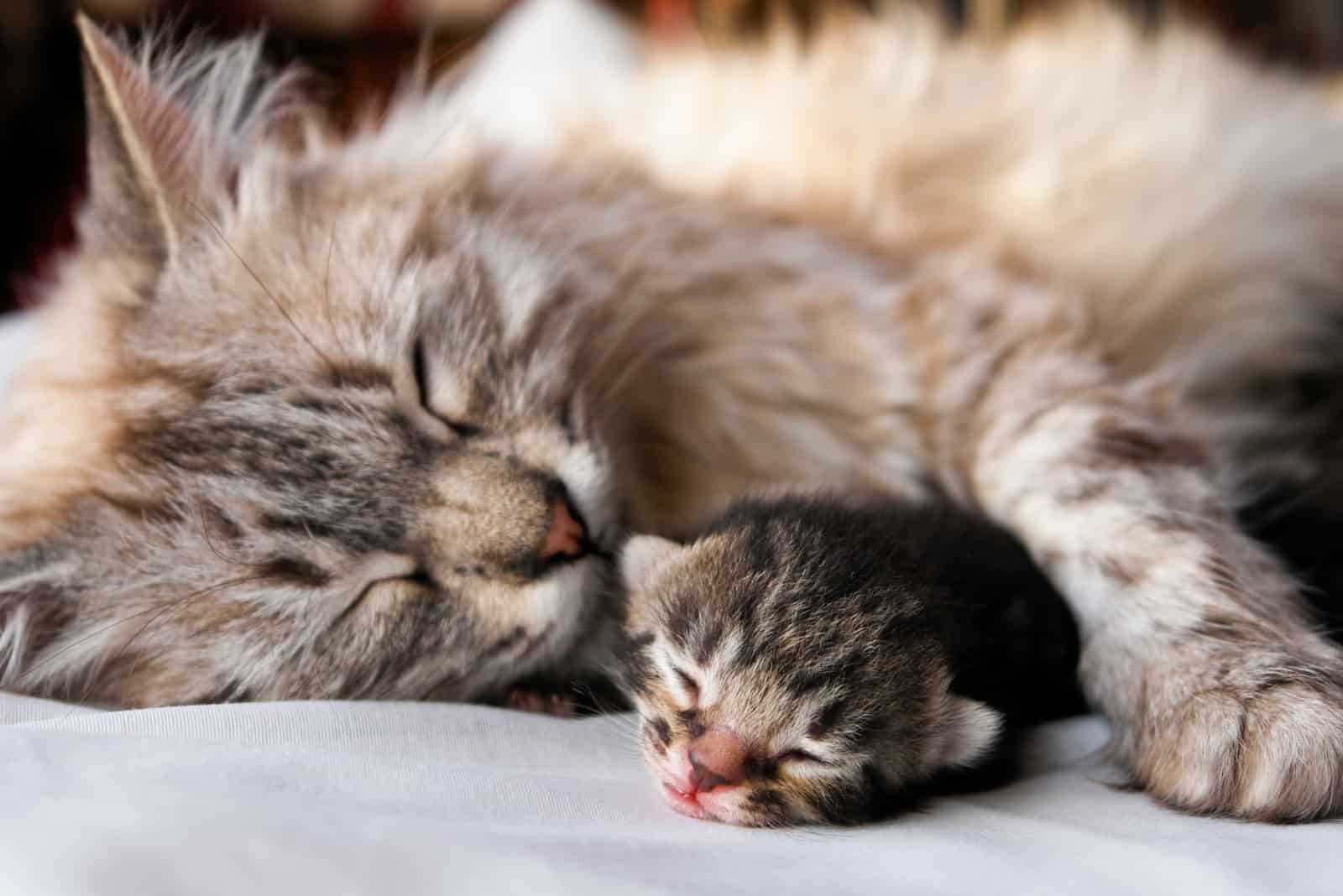
In Conclusion
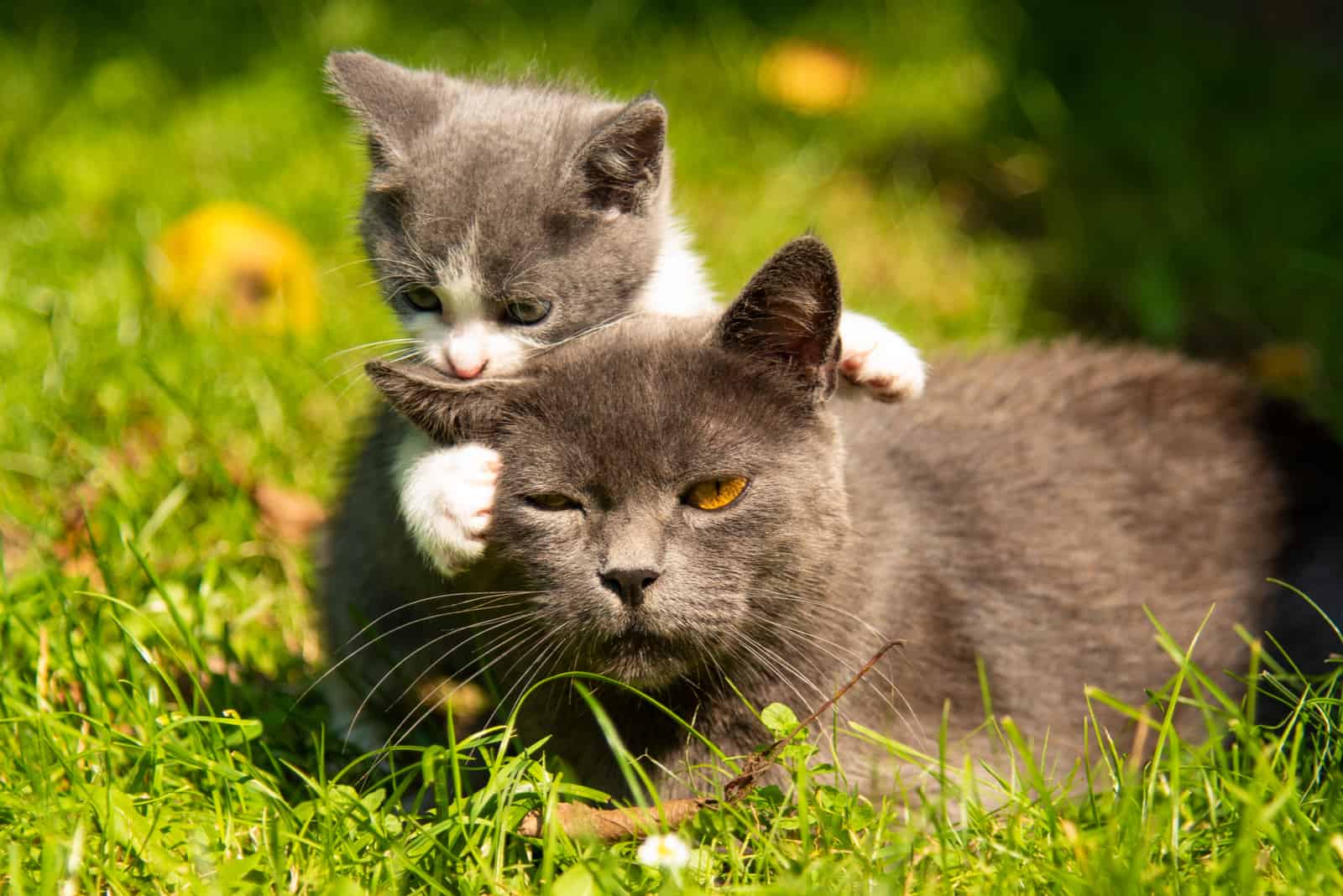
I know it’s a strange topic – mother cats eating their babies – but there are perfectly logical explanations for this bizarre cat behavior! They’re not bad mothers; their instincts are leading them to do it! So, why do cats eat their babies?
The most common reasons for a mother cat eating her kitten are that the kitten was stillborn or very sick, she doesn’t recognize the kitten as her own, she’s malnourished and needs nutrients, she feels predators are around, or she hasn’t developed her motherly instincts.
There are several things cat owners can do to prevent this from happening, such as:
not holding the kittens for too long, providing a stress-free environment during and after the birth, making sure there are no threats around the litter and the mother cat, and providing the mother cat with plenty of good-quality, nutritious food during the pregnancy and afterward.
Don’t worry, a cat eating her babies is not something you’re likely to see as it is relatively rare.

